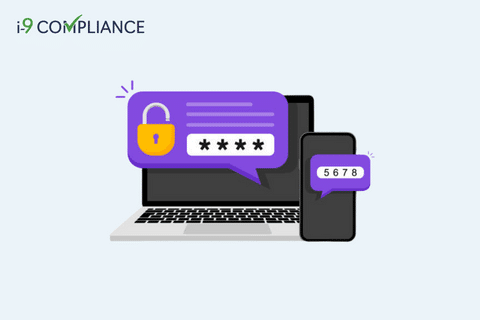Recap of the States That Passed E-Verify Mandates in 2022

January 5, 2023
E-Verify is a web-based program that helps enrolled employers confirm their employees’ employment eligibility to work in the United States. Originally, this program became mandatory for federal contractors and voluntary for others. However, several states have made it compulsory for all employers.
Employers using E-Verify must create a case using information included on the employee’s employment eligibility verification form (Form I-9). With this information, the program will electronically compare it to records available by the U.S. Department of Homeland Security (DHS) and the Social Security Administration (SSA). Generally, employers receive quick responses that either verify the employee’s eligibility to work or request more information to complete the verification process.
The requirement for employers to use E-Verify has increased slightly in 2022. For example, several states have municipal or local requirements for using this program, including Missouri and Florida.
Utah, Tennessee, South Carolina, North Carolina, Mississippi, Georgia, Arizona, and Alabama all require that most or all employers use E-Verify. Texas, Pennsylvania, Oklahoma, Nebraska, Missouri, Indiana, and Florida require state contractors and public employers to use E-Verify. Virginia and Idaho only require public employers to use the program.
Some states have only certain localities or municipalities that require employers to use E-Verify. These include Washington with Woodland, Hoquiam, Pierce County; Florida with Bonita Springs and Hernandez County; Michigan with Macomb County, Oakland County, and Ingram County; Fremont, Nebraska, Denver, Colorado; and O’Fallon, Missouri.
Colorado, Minnesota, and Louisiana only require state contractors to use E-Verify.
Texas has a more unusual E-Verify law, requiring sexually oriented businesses to use it. The Texas Labor Code mandates that all sexually oriented companies register and participate in this program to confirm the employment eligibility of all employees and independent contractors.
This labor code section also permits the Texas Workforce Commission, law enforcement, or the state attorney general to demand proof that the business uses E-Verify. However, they must have sufficient reason to believe the company employed or contracted an individual younger than twenty-one. This suspicion involves investigating whether the individual works or provides a service for the sexually oriented business other than for maintenance, construction services, or repair.
Every state has different E-Verify regulations. As such, employers should know the specific rules for their location. The best way to ensure your business complies with the diverse employment eligibility requirements is to use an electronic I-9 management tool. This tool offers E-Verify integration and can guide employers through employment verification.
Streamline your hiring process with an automated employment eligibility verification and ensure compliance today with I-9 Compliance.